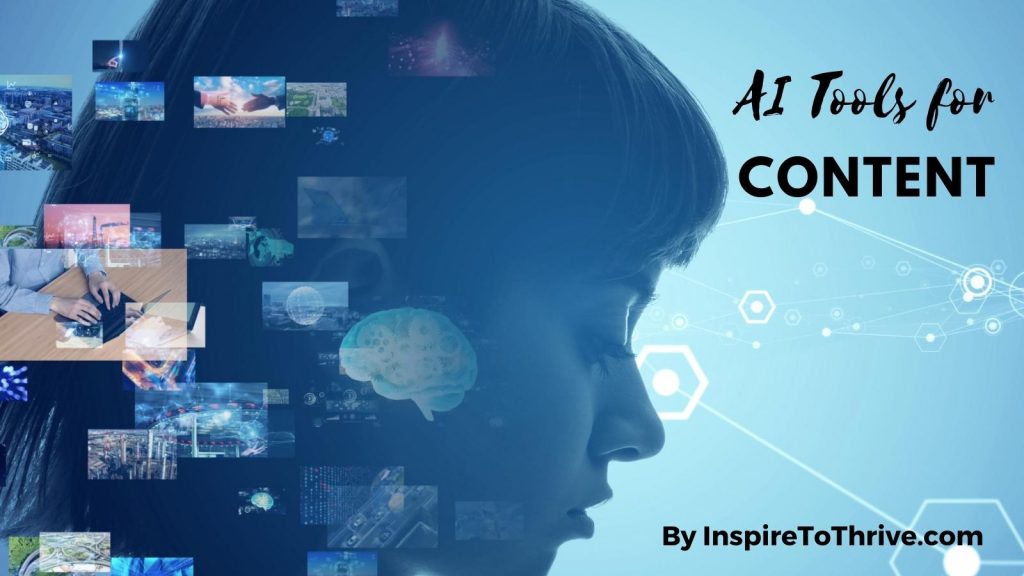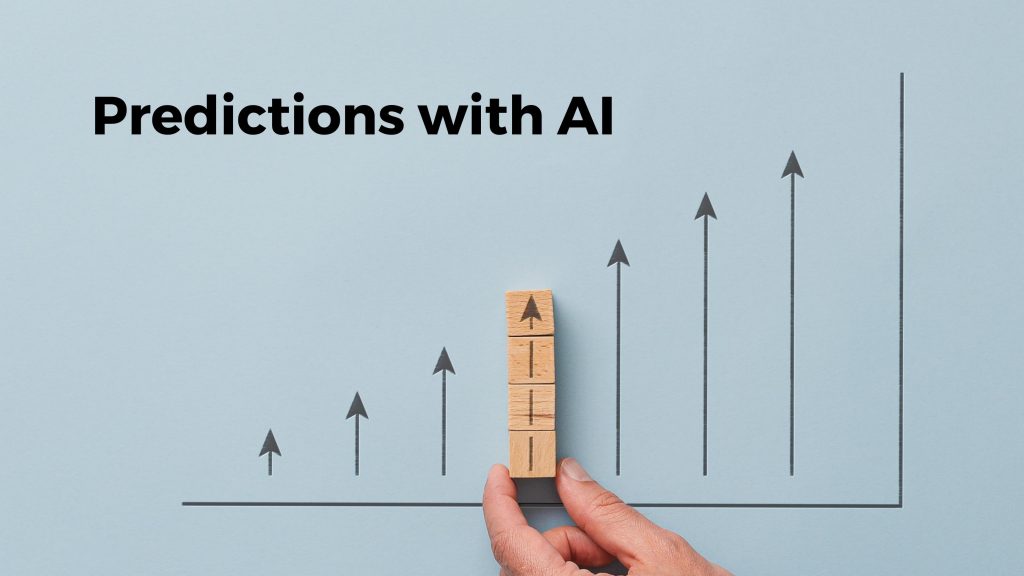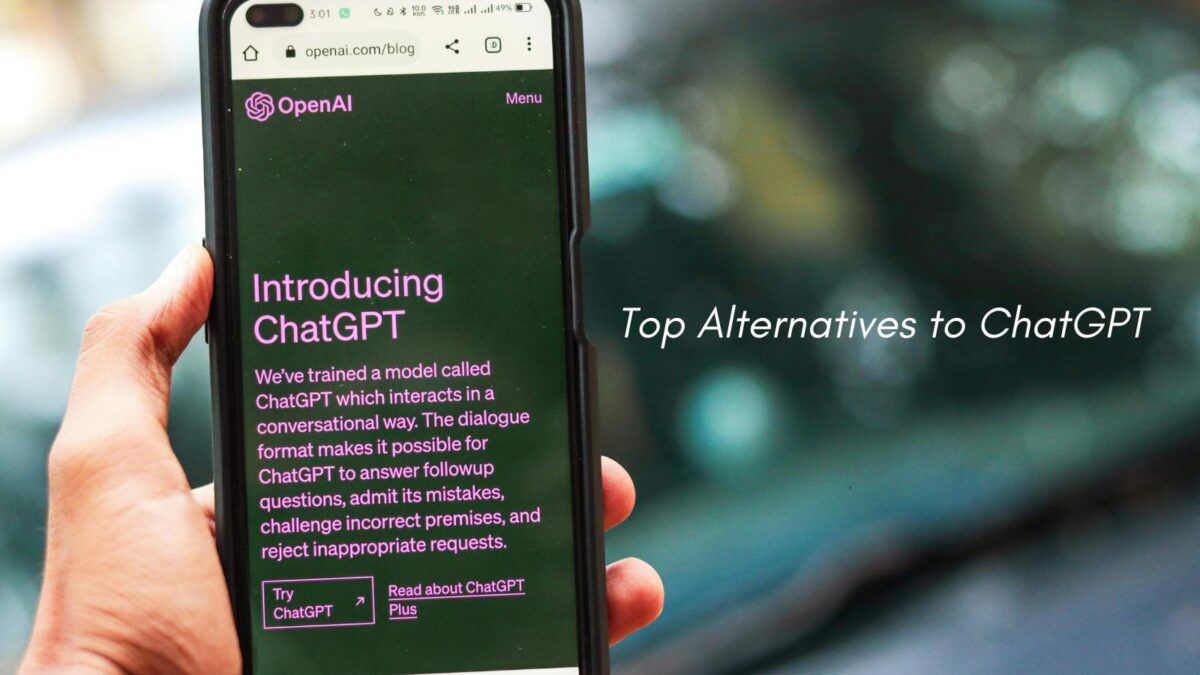Did you know bloggers can leverage SEO AI tools? Although Artificial Intelligence is a sci-fi notion for many people, AI has a long history.
And yet, it is also a great unknown. Its unstoppable advancement causes feelings of both admiration and fear in our society.
The truth is, AI no longer lives only in the imagination of tech geeks and visionaries. We are interacting with AI on a daily basis. For example, whenever we browse the internet or use our phone’s camera we are using AI.

Furthermore, Artificial Intelligence offers powerful features that can boost business and marketing performance. Not just for corporations, but also for bloggers.
In this article, we explore its implications for the future of marketing as it applies to those who post content for a living. If you are a blogger into getting more from AI and its underlying technologies for your marketing, stay tuned.
Table of Contents
Artificial Intelligence and Search Ranking
AI is a problem-solving and decision-making technology. It is very close to machine learning technology, by which a machine can create algorithms to program itself without human input.
Apart from machine learning, AI integrates other technologies, such as natural language generation and deep learning. To put that in practical terms for bloggers.
Artificial Intelligence drives Google search. Although Google is secretive about details, we know that AI powers Google’s indexing, audio, and image searches, as well as security and data protection.
Lisa, Inspire To Thrive
While Google has been accused of producing “search bubbles” that perpetuate social biases, Bing announced new intelligent search features. They automatically provide users with different answers and perspectives on their search queries.
This system aims to have less bias but it, too, is powered by AI.
So, one way or another, AI SEO tools are at the heart of internet browsing and are already indispensable for bloggers, whether they’ve realized it yet or not.
In its most obvious forms, AI helps people find what they want more easily. (And hopefully, that includes you and your blog).
And more subtly, it helps small businesses and profit-seeking bloggers with research, market reach, and SEO optimization, as well as important tasks such as reputation management, sentiment analysis, and sophisticated email marketing.
Inbound Marketing, SEO, and PPC
The basic idea of inbound marketing is to form trustful, long-lasting, and meaningful relationships with your followers. It is rooted in various methods of pull marketing that inform an already interested person and draw them into your audience.
These methods include content marketing, search engine strategies, social media marketing, and more.
In other words, the purpose of inbound marketing isn’t to urge everyone to buy something. Instead, it builds trust and loyalty by storytelling or giving valuable information or insights to those who are already interested in your general topic, lifestyle, field of expertise, or product line.
If you want those interested (“primed”) people to know about your blog and brand, they first have to get to your content. It is not an easy task to reach potential readers when there is so much competition busy creating new content on a daily basis.
Everyone wants search engines to recognize their blog as valuable and display their content above competitors. That’s why the impact of AI on SEO is so significant with new AI tools for SEO coming out.

Bloggers aren’t the only ones paying attention to this. All kinds of companies compete for search-engine prominence because they gain dozens of benefits from content marketing — essential, foundational benefits, from building brand awareness to driving sales.
So in a way, they are also competing with you for the eye of the reader. That’s why bloggers must step up their game to reach new followers.
Blogging and AI SEO Apps
There are two ways most bloggers approach the monumental task of SEO and PPC: hiring an expert agency or going DIY. If you take the agency route, make sure to find a qualified professional with experience working with bloggers who can spell out the entire content marketing process before you take the plunge.
Don’t settle for an agency that can’t do the heavy lifting for you.
If you choose the DIY path, then roll up your sleeves and get ready to learn how PPC complements organic SEO. By using the two together, you can gain fast search results even if your blog is new or your audience is small.
Also, give up your preconceptions of writing taking “forever” and content marketing being “overwhelming,” and see how you can take full advantage of AI SEO tools for your content creation as well as your search strategy. Read on to learn what AI can do for you.

And there’s a middle ground that works for many bloggers: Get lessons from more experienced bloggers before making the decision whether to hire an agency or do it yourself.
Of course, your blog doesn’t exist in a vacuum, so include training on SEO tools and social media channels in your SEO and PPC plans.
Tip For Blogging Upgrades
Was your blog established in the early days of blogging? Does it live on someone else’s platform or have a URL address that only an encyclopedia could love? Is it hidden in the back of Google’s garage behind boxes and boxes of other blogs?
If so, you’ve probably done your best to ignore search engines’ preference for modern, super-fast, technically brilliant sites and the bloggers who produce them. In short, they get better SEO results than you can ever achieve on a blog from the dinosaur age.
Blogging has advanced considerably in recent years. In fact, many blogs that started as recently as 2018 or 2019 are using out-of-date technology today that can’t compete with newer entrants in 2025.
So, if it’s time for you to upgrade your blog site’s online presence, choose one of the top website builders (from Ahrefs to Zyro, with everything from Wix to WordPress in between) and give your blog the upgrade it deserves.
Content Creation With AI SEO Tools
AI writing tools are gaining momentum. They are extremely helpful with writing SEO-optimized content for blog posts, PPC ads, product descriptions, CTAs, etc. Although some bloggers worry that AI could take their jobs, that’s not how things actually work.
AI doesn’t have ideas or goals. It is humans who create trends, define lifestyles, provide confidence and encouragement, and design communities. If you’re not sure how to engage or direct in blogging trends, you can get help from a professional blogging consultant.
But when it comes to executing the marketing that goes along with it, AI is very good at accomplishing what we order it to do.
The list of things AI can do for content creation is long: save the writer from detailed learning they otherwise have to perform before writing
- outline, title, tag, and content generation
- content analysis
- paraphrasing
- translations
- corrections
- originality check
- understanding the follower’s intent
- and more.
If you want more convincing that AI could be helpful to you, check out Jasper’s review of the best AI content generators. (note: Jasper AI is one of the most popular AI content writing tools on the market. Check out this Jasper AI statistics guide from my friend Nikola to learn more about this awesome tool.
Although we’ve focused on things related to writing blog posts in this column, let’s not forget that good blog content takes many forms. Smart bloggers will be looking for continuing AI developments in creating and marketing every facet of content from dynamic online engagement to video and podcast creation.
When it comes to content creation, AI is on the verge of doing for bloggers what an academic paper-writing service does for overwhelmed college students. And that’s great news for blog marketers with tons of content deadlines.
Tip for new bloggers:
If you’ve read this far but you don’t yet have a blog, you may be thinking that with all these advances, now is the time to jump in. And you’re right!
However, there is more to blogging than we’ve included here, so before you take the plunge, read reliable online blogging guides to get off to your best possible start.
In blogging terms, if you get a domain name that mirrors one of your key search terms, you can point it to your branded blog.
Analyzing Big Data Is A Big Deal
The first commandment of marketing is “know thy audience.” To do anything — conceive a strategy, write copy, or increase conversions for your existing PPC campaigns — you have to know the people you are addressing. Only then, you can personalize and optimize your content.
That starts with finding more followers. Naturally, that leads to the topic of AI-assisted lead generation. That is where intelligent automation can manage backend processes.
Not only that but interactive public-facing functions of generating leads, such as personalized promotional email campaigns. Or even AI-assisted chat boxes to support events your blog might promote.
And let’s not forget about the importance of monitoring the competition. After all, what AI does best is collect and analyze data. Thus, AI tools can help you thoroughly track competitive behavior and follow emerging trends.
If you never find enough time to read the hundreds of blogs that are competing for your reader, then remember, the amount of data AI can analyze can’t even be compared with anything achievable by human experts.
AI and Call Recording
By the way, just because AI is brilliant at analyzing big data, don’t overlook how useful it can be with “little data” as well. For example, if you blog for a business that uses a VOIP phone service, you could engage in call recording.
Then let an AI tool scan what callers say for keywords and trends. (Are their mentions of Problem A or Solution B increasing? Are they influenced by Trend C or Celebrity D?)
Analysis of consumer call information can help you choose new content directions, identify better search terms to bid on, or update your strategy. Make sure to customize your communications so that AI can access audience-generated data.
Identify The Best Bids
The so-called bidding for ad space or position is the digital version of an auction. In the process of bidding, Google rents the space for ads to those who offer the largest amount. And guess who the auctioneer is? AI, of course.
Bloggers who advertise know that bidding is closely related to keywords. Everyone wants their paid ads to be shown to the most relevant searches. Not only does that bring better results in terms of leads, reads, and likes, but it also can involve a pretty big expense.
But, just as Google relies on its intelligence systems, so can you. In fact, AI is one of the biggest PPC trends for bloggers and marketers to make use of in the coming year.
How does AI help you here? In many ways. It can automatically detect weak keywords and freeze them. Furthermore, it enables easy modifications, split testing, and more effective bidding.
All these options make your audience exposure much more efficient.
AI SEO Tools And Keywords
Also, AI’s ability to hone in on keywords can help in other ways, too. For example, a strong, evergreen keyword in your area of specialization will always be a good domain name choice, menu item, page title, or even product name.
In some cases, it might even suggest a logo design or mascot. All things that can boost brand identity and recognition among the consumers you want to attract.
In blogging terms, if you capture a domain name that mirrors one of your key search terms, you can point it to your branded blog.
That not only helps attract readers but also blocks competing bloggers from using that keyword-rich domain name.
Make Predictions
Knowing which keywords are relevant to your blog is critically important. However, in the highly volatile context of the contemporary internet, predicting both popular and unpopular phrases in time is essential for outrunning the competition, and nowhere is that more important than blogging.
Understanding the context of SEO-friendly keywords and semantics, and knowing which keywords will become (or stop being) relevant, takes you to a whole new level of marketing efficiency.
This affects more than your standard marketing. Let’s say something happens to cast a shadow on your reputation.
You’ll need to do more than respond to negative online reviews; you’ll need to find ways to predict where that trend is going. Then remove, minimize, or repair negative online search results.
That way consumers and followers will be attracted to you, not be pushed away. Using AI for fast, deep SEO-related solutions is becoming an essential part of modern reputation management.

You’ve probably guessed this — AI has psychic abilities as well. Because it can access and process extensive amounts of data, AI understands consumer behavior patterns and psychology exceptionally well.
Therefore, it can help you stay up-to-date with the latest trends. Not only that but minimizes losses of time or PPC funds in the future
Save Time
The best thing about AI is its colossal efficiency. The amount of data it processes in minutes or hours is something a human would need a lifetime to match.
It enables quicker content generation, much more thorough and reliable data analytics, and much easier coding.
All these AI features relieve you and those who support you from tedious, repetitive chores. Therefore, leaving you more time for the creative work you love.
While AI can show you where to go and help save time getting there, it can also show you what to avoid. For example, AI will automatically detect issues such as dropping traffic and weak keywords.
Usually, before you notice them, and keep you from investing your time and money in tactics that no longer work. Or in using trends that have lost their momentum.
AI and Payment Processors
AI can help in other areas of your blogging business as well. If your content creation drives sales on your blog, and you sell at a steady volume, then you’ll want to associate yourself with a payment processor whose systems are built with AI and machine learning technologies.
You won’t have to manage the AI/ML tech directly on your blog because payment processors do that for you – but you will benefit from it.
That’s because current credit card payment trends include higher credit card acceptance rates and faster processing, resulting in more sales for you.
Wrapping Up: AI SEO Tools
Expert bloggers know that marketing that integrates both SEO and PPC has an excellent chance of success.
Although pay-per-click was initially an advertising tool established to benefit outbound marketing, it has become a huge compliment to inbound marketing strategies. And that’s why it matters to bloggers.
As with content marketing, analytics, SEO, and PPC tasks have become thoroughly automated. They have opened the door for AI to enter the picture. They have become the superpower every blogger wants to have in their corner.
After all, the more valuable your content is for users, the more search engines will reward it with traffic.
AI is not yet perfect, but even in its emerging state, it brings a wealth of advantages to every blogger who understands its capacity to boost the performance of content creation, operations, and promotion. What’s not to like?
- Twitter Porn On X Allowed: How To Avoid & Block Porn Easily - February 20, 2026
- Ground News Pricing: Are Pro, Premium, and Vantage Packages Worth it? - February 18, 2026
- Instagram Follower Tracker | Save Loads of Time With Dolphin Radar Tracker - February 18, 2026





I really like this article. It’s a great overview of the ways that AI can be used for SEO purposes. I’ve been blogging using SEO tools for a while (how much I wish I had these tools back in 2015 when I was content writing full time!) and think that it’s amazing how far they’ve come since the release of GPT-3 a few years back. I did a small bit of research into AI content for SEO using the top 50 questions on Google. And I was very surprised to see that any sites at the top of the search engines were identified as likely AI content.
I think AI content is a great chance for people who have great ideas but struggle to articulate them in blog posts to get their ideas in front of people and hopefully build businesses off the back of their ideas. Especially now that Google has announced they will not penalize AI content.
Hi Richard, welcome to Inspire To Thrive. It is amazing how many tools have come out for SEO with AI in the last year alone. I’ve been playing with Surfer SEO and it’s pretty cool so far. I’m careful when I do use AI for writing as I’ve found some facts to be outdated or not true. But it’s a huge timesaver to get paragraphs written so quickly. I like putting in my own experiences and case studies too. Thanks for your input here Richard. Have a great day.
I’ve heard good things about Surfer SEO. I picked up Frase very early on after its release and they both do similar things, so I didn’t see the need to have both. You’re right about the outdated facts and “hallucinations”, although I found providing the AI with a few bullet points to use can work to keep it accurate. I wouldn’t ever want to rely on a full AI article to be accurate without having some input though!
Thanks for your reply, I’m glad to have found another blog with a lot of useful content about AI and SEO!